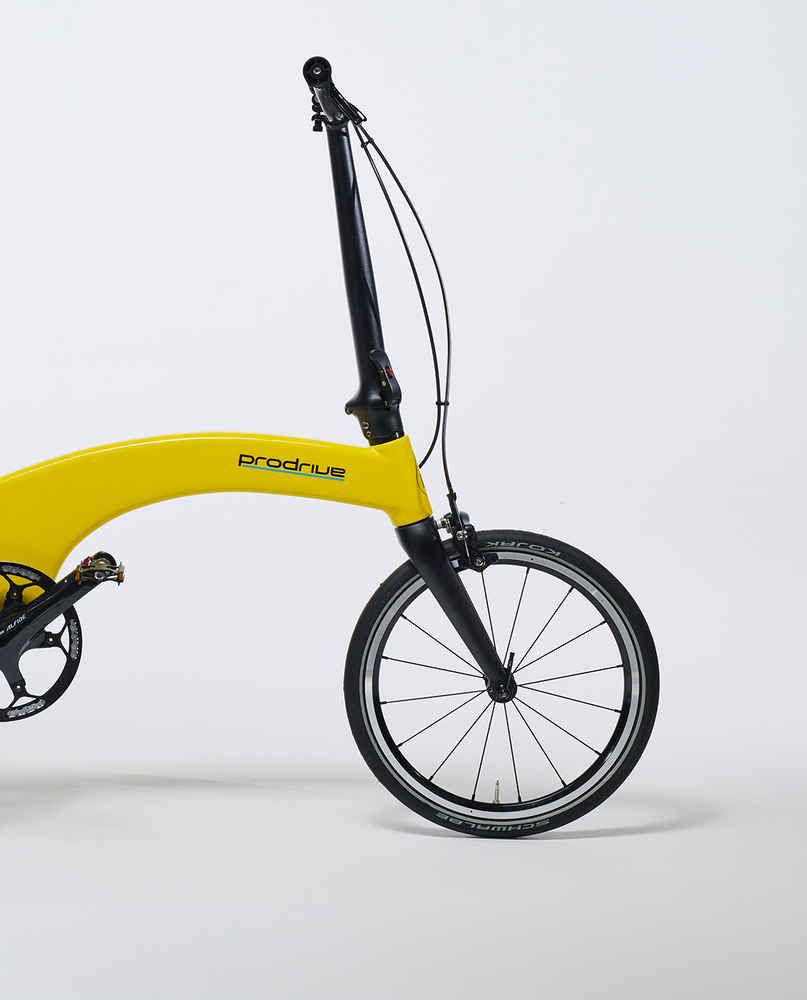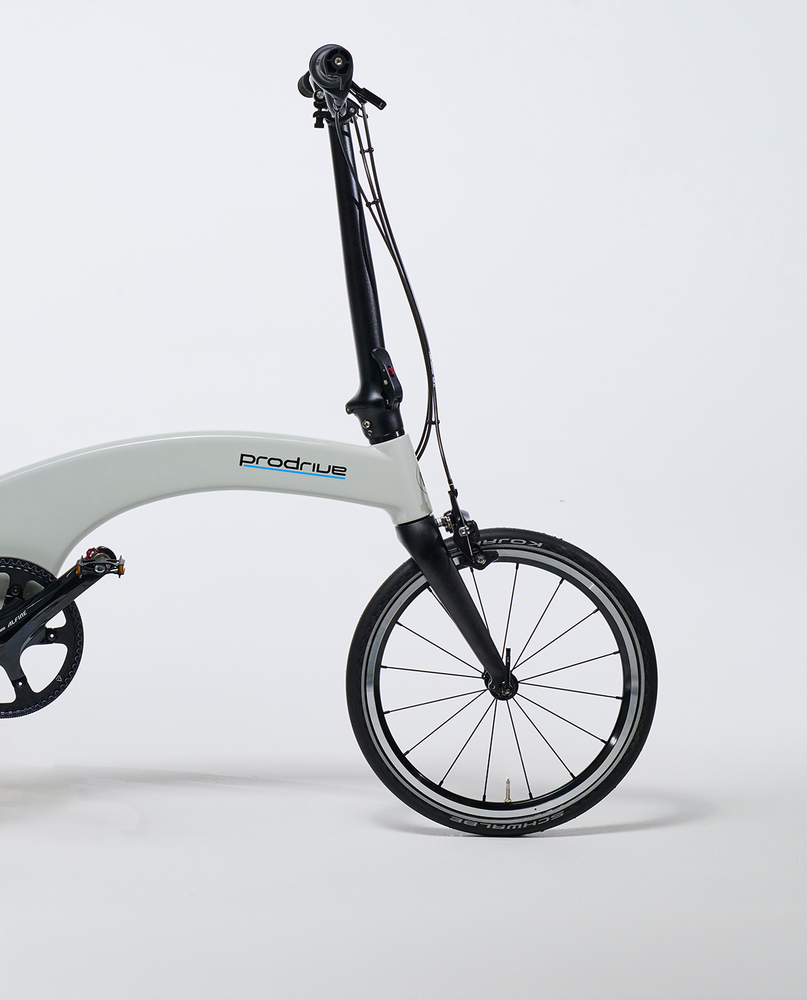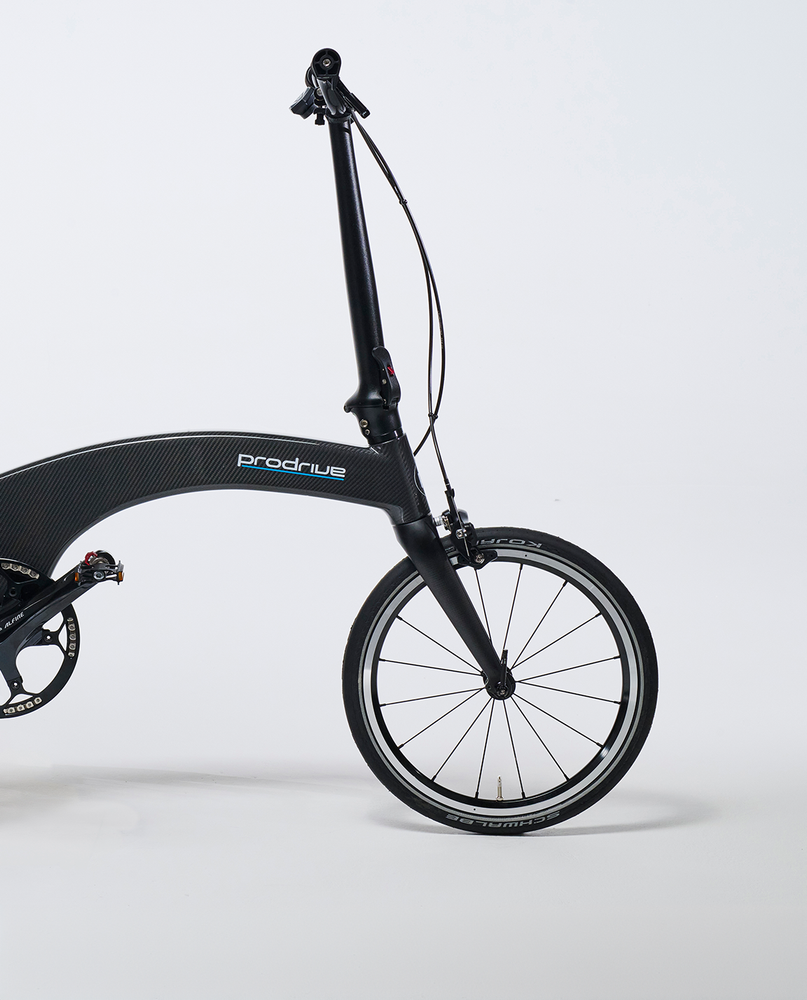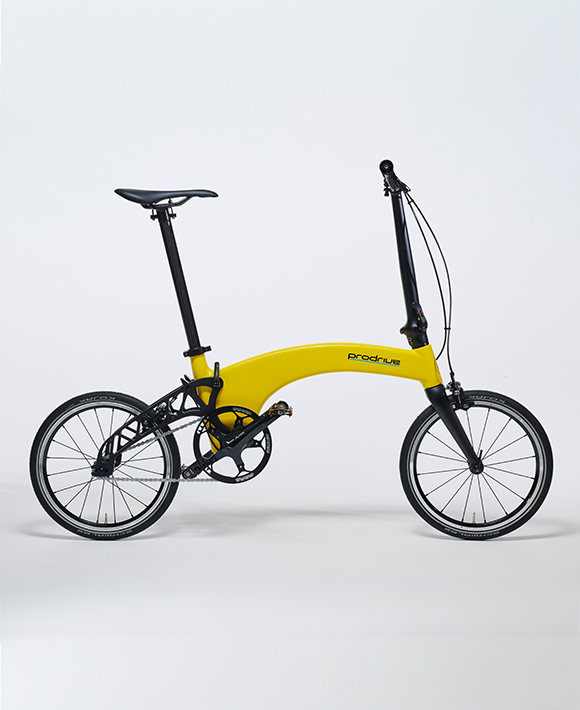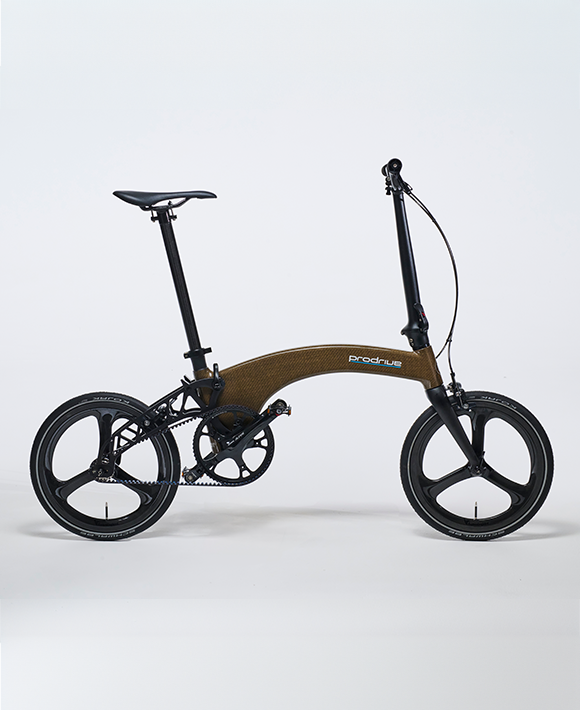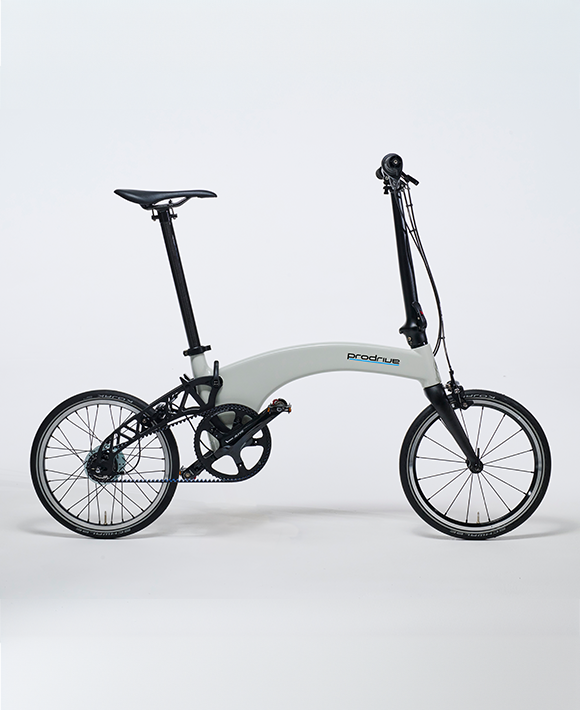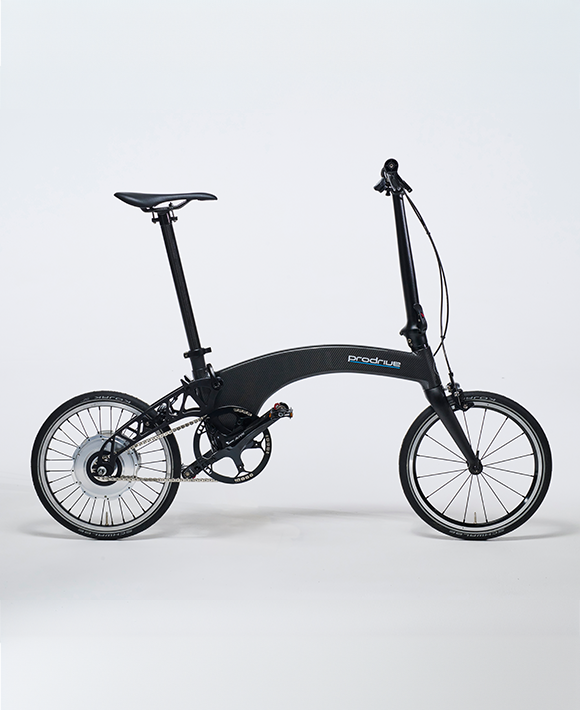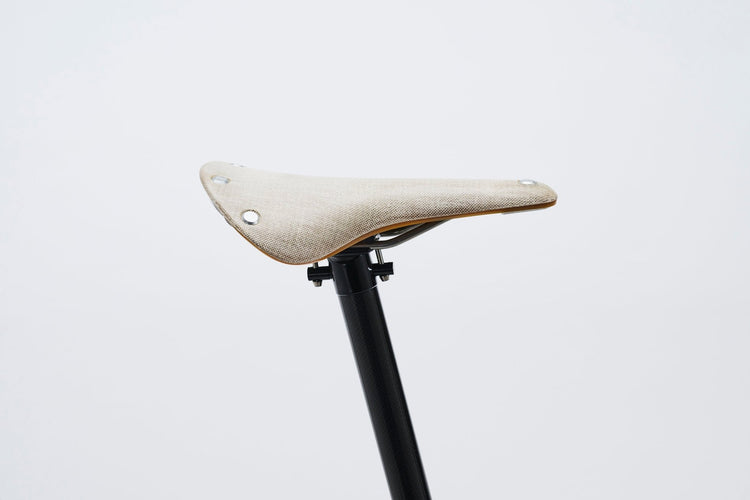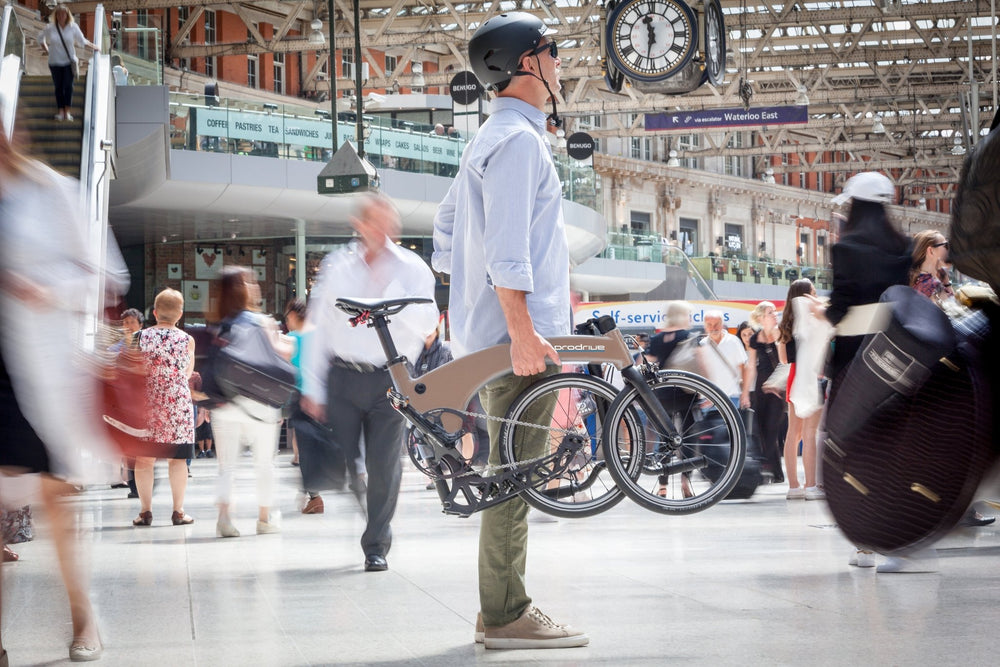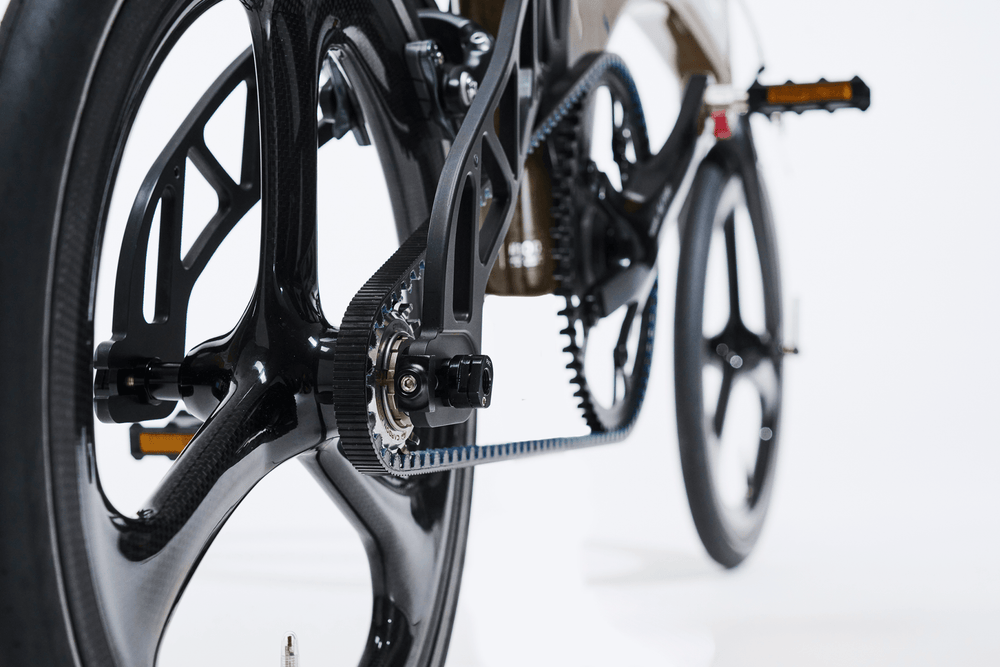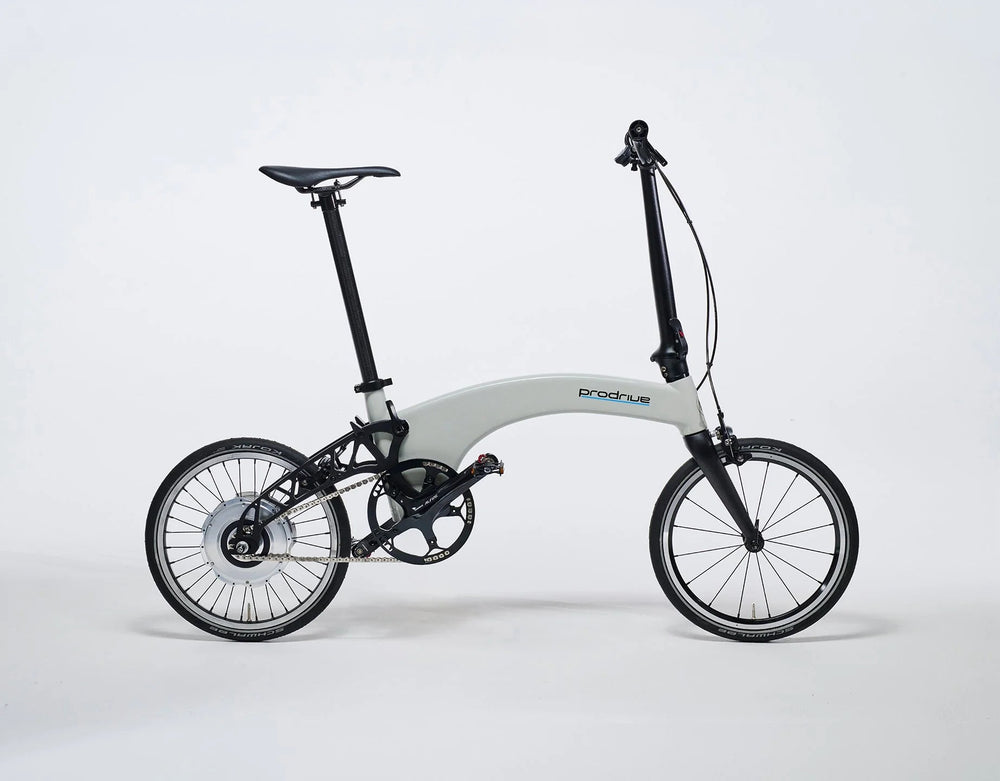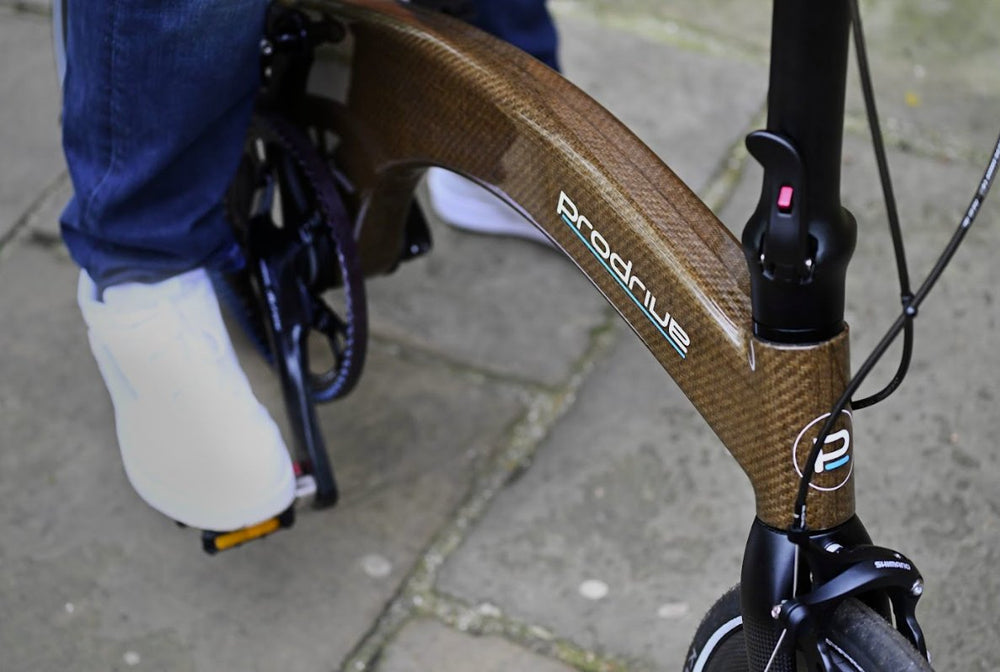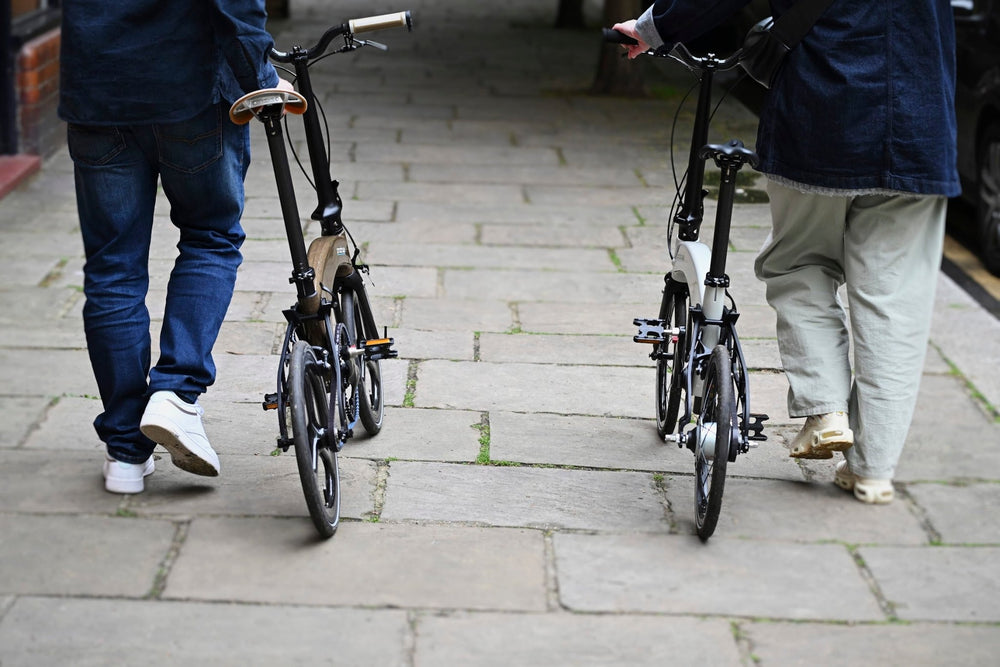You might also like
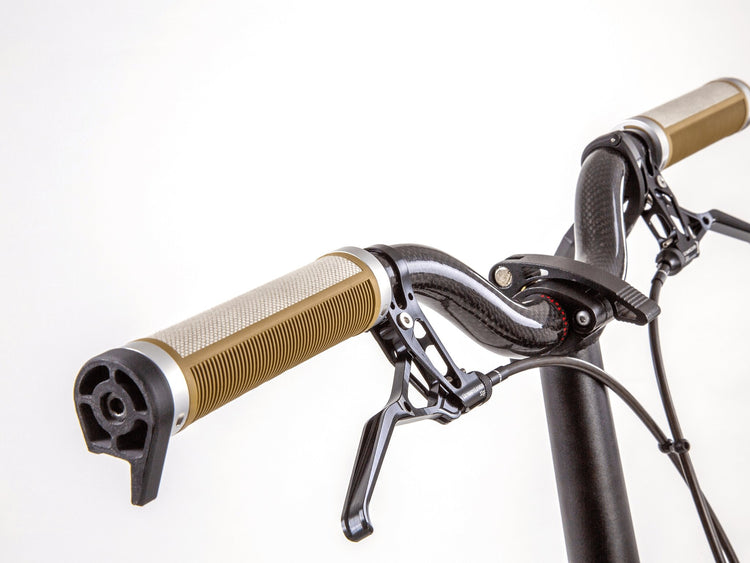
Brooks Cambium Rubber Grips
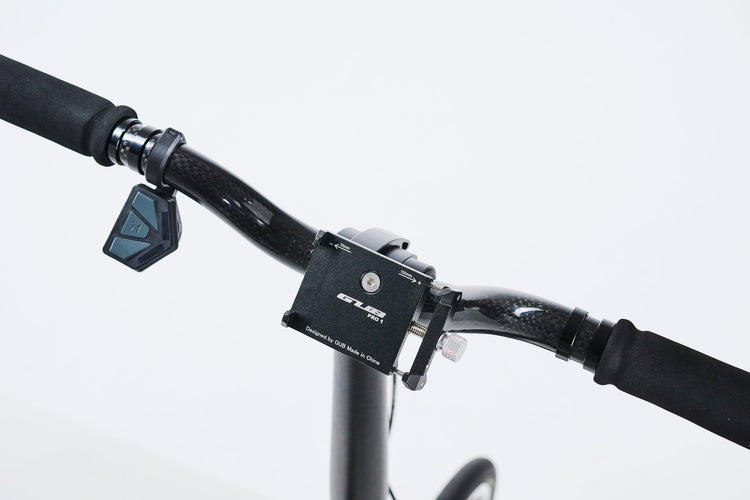
Phone holder
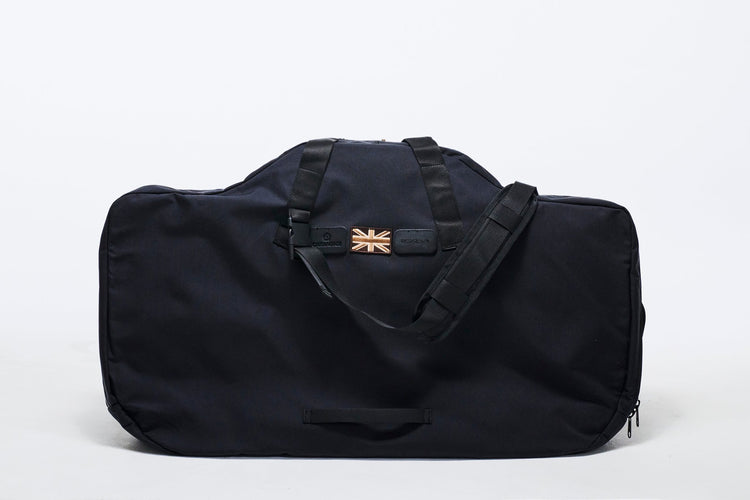
Prodrive Folding Bike Carry Bag
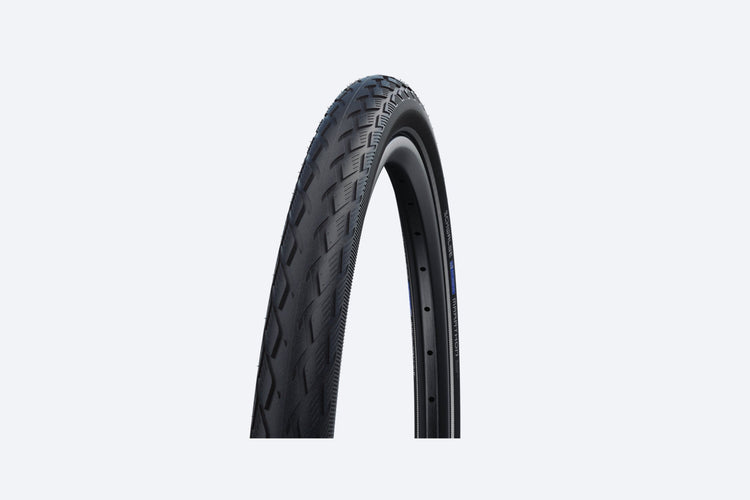
Schwalbe Marathon Tire Swap
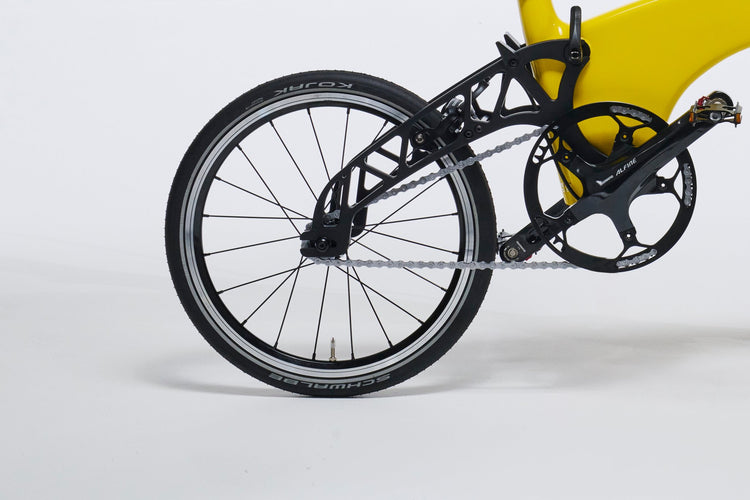
Spare Single Speed Wheel
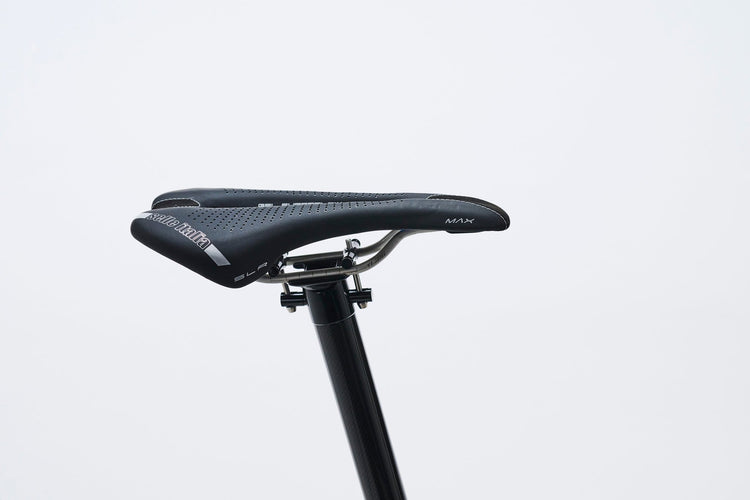
Men's Gel Saddle
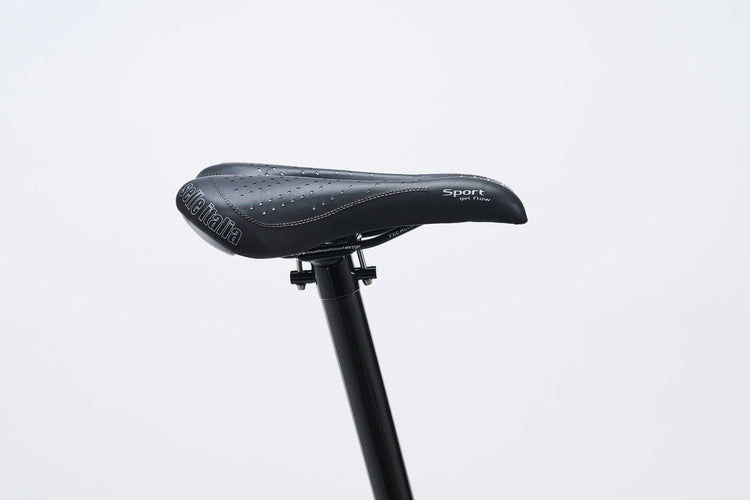
Women's Gel Saddle

19 September 2024
The Environmental Impact of Choosing a Folding Bike Over a Car
As awareness of climate change and environmental degradation grows, the focus is shifting to individual choices—especially how we get around. One of the most impactful decisions is whether to use a car or a folding bike, particularly in bustling urban environments.
For those who desire to reduce their carbon footprint without compromising on mobility or sophistication, a folding bike presents a sleek, eco-friendly alternative to traditional cars.
From quicker commutes to fuel savings and enhanced lifestyles, let’s explore the environmental advantages of opting for a folding bike over a car.
The Carbon Footprint: Car vs Folding Bike
The average car in the UK emits around 1.6 tonnes of carbon dioxide annually, with these emissions from burning petrol or diesel fuel playing a major role in worsening air quality and the accelerating impact of climate change. Every mile driven contributes to this growing environmental burden. In stark contrast, folding bikes are entirely powered by human energy, producing zero emissions and leaving no carbon footprint during use.
This contrast becomes even more significant when you consider that the majority of car journeys in the UK are short, local trips—usually less than five miles—making them ideally suited for cycling.
The Average Commute
For many people, the daily commute involves driving short distances. Research shows that in urban areas, commutes often range from 5 to 10 miles. Nearly all of these trips, especially those under 10 miles, could easily be done on a folding bike.
Choosing to bike instead of drive for these distances not only cuts down on greenhouse gas emissions but also reduces traffic congestion and air pollution—major problems in crowded UK cities.
Running Errands and Short Trips
Most car trips are for errands: a quick stop at the store, meeting friends, or attending a nearby appointment. Cars are highly inefficient over short distances, especially in stop-start city traffic, where fuel consumption soars.
Folding bikes, however, excel in these conditions, allowing riders to whizz through city streets effortlessly, without the hassle of finding parking or using fuel. Choosing a folding bike for such short trips can dramatically reduce your personal environmental impact.

Car Manufacturing vs Bike Manufacturing: The Environmental Cost
Although both cars and folding bikes require resources to manufacture, the environmental cost is starkly different. Car production demands vast quantities of steel, aluminium, and plastic, and is an energy-hungry process. What’s more, cars have shorter lifespans and disposal creates additional landfill waste.
Folding bikes, on the other hand, are made with far fewer resources and boast a much smaller environmental footprint. Lightweight and crafted from fewer materials, they are more sustainable. Luxury folding bikes are often built with high-quality, durable materials that last longer, reducing the need for frequent replacements.
Fuel Savings: An Environmental and Financial Edge
One of the most obvious differences between a car and a folding bike is fuel. Cars in the UK run on petrol or diesel, burning fossil fuels that release harmful pollutants into the atmosphere.
With a folding bike, fuel isn't a concern. Your energy is the only power source you need—perhaps the cleanest energy there is. As fuel prices fluctuate, the long-term savings of using a folding bike instead of a car become even more attractive. Over a year, choosing a folding bike could save you hundreds, if not thousands, of pounds.
Consider this: the average UK motorist spends more than £1,200 annually on fuel. When compared to the minimal maintenance costs of a folding bike, the savings are remarkable. And, with the ability to combine folding bikes with public transport, the environmental and financial advantages only multiply. Folding bikes are allowed on buses, trains, and the Tube, making them an ideal companion for mixed-mode commuting, and seamlessly integrating with public transport networks.
Weekend Trips and Leisure
A folding bike isn’t just for the daily grind—it’s also perfect for weekend getaways and leisure activities. While cars are often chosen for their convenience during longer weekend bike rides, they can also result in increased fuel consumption and environmental degradation. Cars need parking, contribute to noise pollution, and when used on a large scale, degrade natural landscapes.
A folding bike, however, can be easily carried onto public transport or stored in the boot of a car for trips involving mixed modes of travel. Whether it’s a scenic ride through the park, a countryside adventure, or a charming trip to a nearby town, using a folding bike for part of the journey substantially lowers your environmental impact. Plus, it invites you to explore the outdoors in a way that’s mindful of the planet.
Running Costs: Car vs Folding Bike
Beyond fuel, the running costs of owning and maintaining a car compared to a folding bike are significantly different. Cars require regular, often expensive maintenance—think oil changes, brake repairs, and eventually, major fixes. On average, the annual cost of maintaining a car in the UK is over £1,000.
Folding bikes, on the other hand, are much simpler. While a luxury folding bike may need an occasional tune-up or new tyres, these costs are minimal in comparison. Plus, many folding bikes are designed with longevity and ease of use in mind, meaning they require less frequent servicing than traditional bikes, keeping ongoing expenses low.
Health and Wellbeing: A Bonus for You and the Environment
One of the most overlooked benefits of choosing a folding bike over a car is the positive effect on personal health. Regular cycling promotes physical fitness, strengthens muscles, and boosts mental well-being. In a world where sedentary lifestyles are tied to numerous health issues, riding a bike is a sustainable and healthy alternative to driving.
By biking, you're not only reducing your reliance on fossil fuels, but you’re also improving your health. The healthier you are, the more likely you are to choose active, sustainable forms of transportation.
Reducing Congestion and Supporting Public Transport
Cities around the world are choosing more sustainable forms of transportation by promoting bike-sharing programmes, cycle to work schemes and dedicated bike lanes, making it easier than ever for commuters to embrace cycling.
Folding electric city bikes are a natural complement to public transport, allowing for mixed-mode commutes that help reduce congestion and lower emissions.
By choosing a folding bike, you avoid adding to the traffic jams that waste time and fuel. More people biking also means fewer cars on the road, leading to cleaner, more liveable urban spaces for everyone.

A Smart Choice for the Future
Choosing a folding bike over a car isn’t just an eco-friendly move—it’s a sophisticated lifestyle shift with a wealth of benefits. From lowering your carbon emissions and fuel costs to improving your health and slashing running expenses, folding bikes represent the future of sustainable mobility.
As cities grow more congested and climate change continues to influence global policies, folding bikes stand out as a luxurious, eco-conscious solution for modern travel.
Whether you're commuting to work, running errands, or seeking adventure, a folding bike allows you to shrink your carbon footprint while embracing the freedom of the open road.
Discover the perfect blend of luxury and convenience—shop our range of premium folding bikes today and experience the freedom of effortless travel.
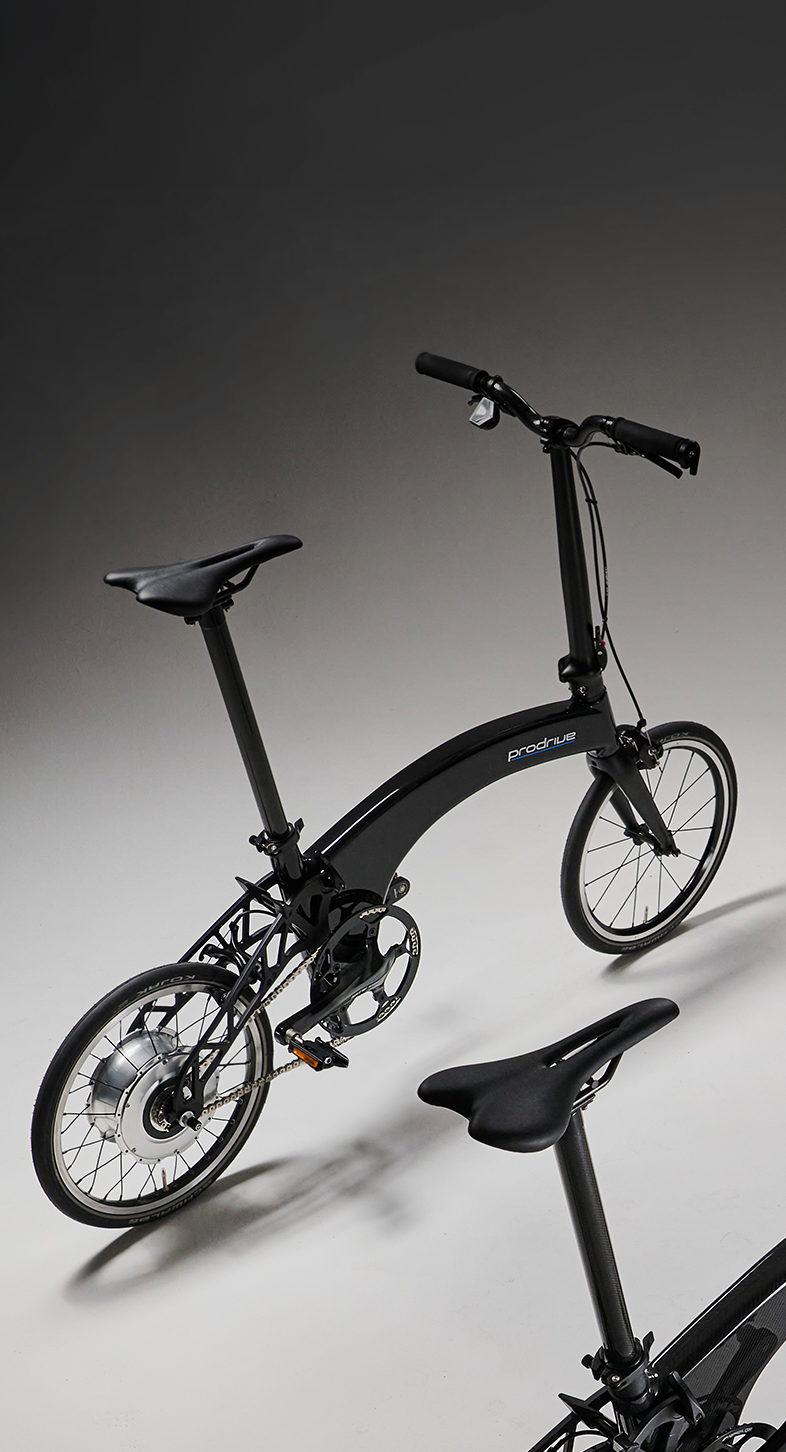
Prodrive Folding
Electric Bike
The ultimate city bike is here.
Latest from
the magazine
